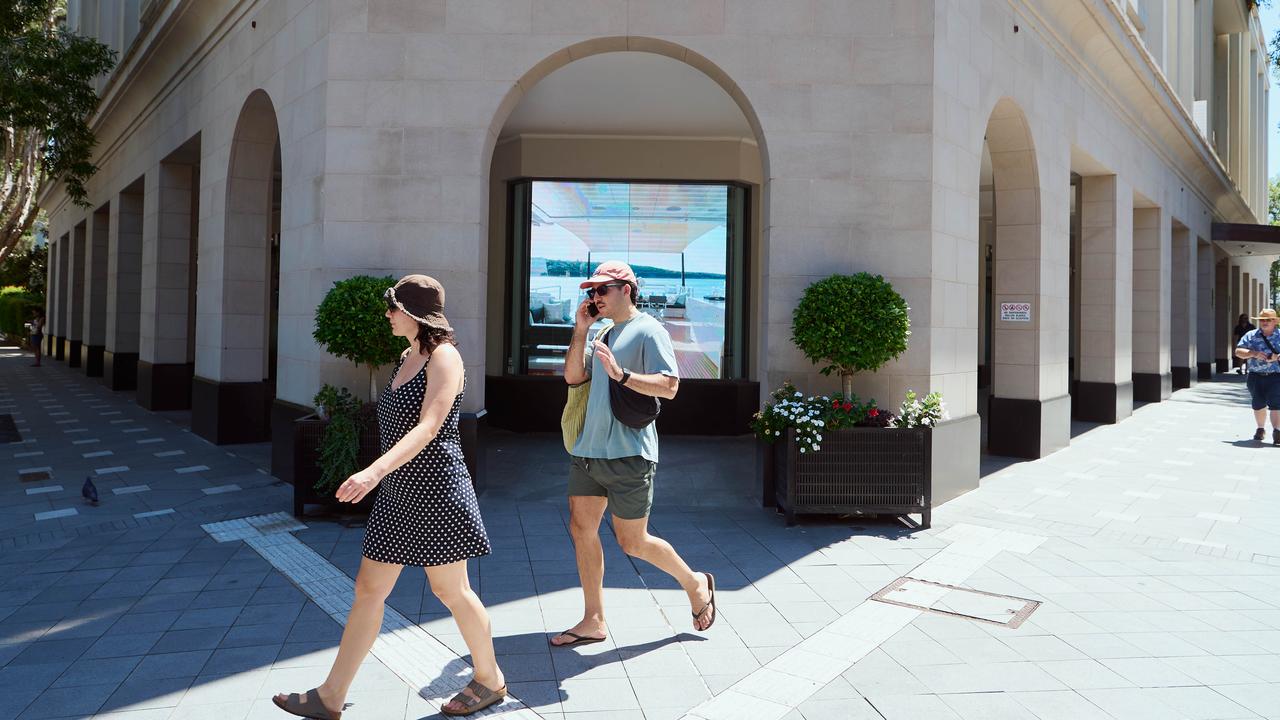Bank of Queensland says loan growth will surprise, declares dividend despite COVID-19 profit slump
Bank of Queensland’s chief says loan growth will beat expectations as the federal budget helps ease caution on borrowing and spending.

Bank of Queensland chief executive George Frazis believes as confidence returns to the business and consumer sectors, cautious COVID-19 behaviour will dissipate and loan growth will surprise on the upside.
His comments come as investors applauded BOQ’s decision to resume paying dividends after a COVID-19 deferral, and the bank posted a smaller-than-anticipated decline in annual profit.
During the economic turmoil caused by the pandemic, the banking sector has seen customers rush to boost deposits and top up mortgage offset accounts in preparation for tough times while many businesses have deferred investment decisions.
Mr Frazis is optimistic the federal government’s sweeping stimulus measures — including personal tax cuts — outlined in last week’s budget will go some way to easing caution around spending, borrowing and investing.
“What’s happening is people are still conservative but as confidence improves some of those deposits and savings will then slowly come out of the offset accounts etc and go into spending,” he said in an interview.
“But it will depend on people feeling good about their job … the other critical thing is if there’s a viable vaccine that is discovered.”
On Wednesday, Westpac’s consumer confidence index for October climbed to its highest point in three-months with the budget cited as a positive factor.
Mr Frazis thinks annual growth in home lending may reach 3 per cent to 4 per cent, outpacing expectations of 2 per cent growth and tips business credit will be flat rather than down in the year ahead.
He told analysts that BOQ’s mortgage applications had returned to pre-pandemic levels.
But the banking sector first needs to work through weaning borrowers off loan repayment pauses.
Mr Frazis admitted a small proportion of customers were not engaging with BOQ, despite the bank making overall progress on reducing total loan balances on deferral arrangements.
“That is an issue (borrowers not engaging) we are experiencing as well, primarily on the personal side rather than the SME side,” he said.
“We are just being really persistent to contact those.”
Since an April peak, loan balances for those on repayment pauses had declined by almost 19 per cent by August 31 and fallen by 23.8 per cent by the end of September.
As at August 31, BOQ had 12 per cent of housing customers and 16 per cent of small and medium business customers on banking relief.
The Brisbane-based bank declared a full-year dividend of 12c per share, reflecting 6c for each half. Against the backdrop of the pandemic and regulatory guidance that caps dividends at 50 per cent of statutory profit, the payment was a 81.5 per cent cut on 2019 dividends of 65c per share.
In August, rival Bendigo and Adelaide Bank deferred its final dividend.
BOQ’s cash net profit tumbled 30 per cent to $225m for the 12 months ended August 31, compared to the prior year, as it set aside higher charges for loan losses and worked through a multi-year transformation plan.
Statutory profit slid 61 per cent to $115m due to previously outlined restructuring changes and a review of intangible assets.
Mr Frazis said he was focused on navigating COVID-19 while executing the new strategy and maintaining business momentum.
‘We have a clear transformation road map and are delivering against it … Our prudent collective provision sees us well placed to withstand anticipated lifetime losses arising from COVID-19.”
The profit result beat analyst expectations sparking a 5.2 per cent surge in the bank’s shares to $6.73 in Wednesday’s trading, bucking a decline in the S&P/ASX200.
“While BOQ remains exposed to tail risk losses should economic conditions disappoint, BOQ’s second-half 2020 result was better relative to Macquarie and consensus expectations,” Macquarie Group analysts said. “Although we remain cautious on the medium-term outlook and maintain our ‘neutral’ recommendation, we see scope for near-term rerating.”
Mr Frazis’ outlook statement pointed to BOQ targeting better than industry-average lending growth in its 2021 year, limiting net interest margin decline to between two and four basis points and keeping cost growth to about 2 per cent.
BOQ’s annual report showed Mr Frazis’ total pay in his first year in the role printing at $1.65m. Across the executive team short term incentives paid ranged from 50 per cent to 65 per cent of total targets.
Net interest income increased 3 per cent $986m for the year ended August 31, from the prior corresponding period, buoyed by lending growth and the net interest margin edging up three basis points in the bank’s latter half to 1.92 per cent. The net interest margin is what the bank earns on loans less funding and other costs.
BOQ’s business divisions saw lending grow strongly to $337m for the year, while the retail bank — which includes branches and Virgin Money — swung to slightly positive growth of $65m after going backwards in the prior year.
BOQ last month flagged higher loan impairment expenses of $175m before tax for the 2020 year, underpinned by amounts set aside for COVID-19 losses.
S&P Global Ratings said while it expected BOQ to suffer from higher credit losses they would “not materially” affect its assessment of the bank’s credit strength.
BOQ’s common equity tier one ratio came in at 9.78 per cent for 2020, up 74 basis points.
The bank also announced on Wednesday it had agreed to sell its St Andrew’s Insurance unit to Farmcove Investment Holdings for $23m.
The transaction ends a protracted period of trying to offload the division, and is expected to result in a post‐tax statutory loss on sale of about $27m to $30m.





To join the conversation, please log in. Don't have an account? Register
Join the conversation, you are commenting as Logout